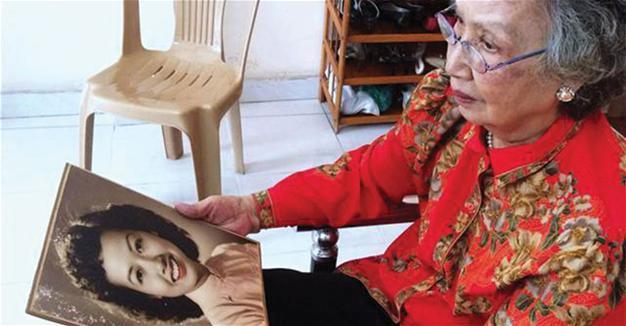Vietnam War propaganda broadcaster ‘Hanoi Hannah’ dies
HANOI – Agence France-Presse

AFP Photo
Silky-voiced communist propaganda broadcaster “Hanoi Hannah,” famous for urging American GIs to leave her country during the Vietnam War, has died at age 87, friends said Oct. 4.The radio presenter, whose real name was Trinh Thi Ngo, was among dozens of Vietnamese journalists drafted by the communist regime to inundate the country with anti-U.S. rhetoric during the conflict that ended in 1975 with the fall of Saigon and America’s defeat.
“GI, your government has abandoned you. They have ordered you to die,” she said in one of her on-air appeals in English during the draining war.
“Don’t trust them. They lied to you, GIs, you know you cannot win this war.”
In daily broadcasts on state-run Voice of Vietnam (VOV) from the northern capital Hanoi, Hannah would list the names of American troops killed in combat, read U.S. newspaper articles about anti-war protests and lull listeners with Joan Baez and Bob Dylan tunes.
She rarely spoke of Vietnamese losses or American successes in her broadcasts, which were carefully controlled by the communist authorities.
Hannah died Sept. 30, at her home in Ho Chi Minh City, according to VOV.
“Hanoi Hannah was clearly one of the most prominent broadcasters we had in history of the Voice of Vietnam and the country in general,” said Nguyen Ngoc Thuy, a former journalist at VOV’s English service.
“She will be remembered for her legendary voice in broadcasts targeting American servicemen. Her influence on Vietnam’s success against the U.S. was huge,” Thuy added.
Hannah joined VOV at the outset of the war, recalling in her memoir a desire to make a difference to the war effort.
“I thought it was time for me to do something to contribute to the revolution,” according to an excerpt reported on VOV.
Hannah went on to work for Ho Chi Minh City Television after the war and was reclusive in her final years, rarely speaking to the press.
The Vietnam War, still called the American War in the country today, ended with the fall of the southern capital more than four decades ago at the hands of communists forces.
The southern capital was renamed Ho Chi Minh City after the country’s independence icon who died before the war’s end.
At least 2.5 million soldiers from Vietnam’s communist North and U.S.-allied South died in the conflict, along with three million civilians, according to official figures.
On the American side, more than 58,000 soldiers lost their lives, while some estimates say more Vietnam veterans committed suicide after the war than died in fighting - although the figures are disputed.
Relations between the former wartime enemies have warmed in recent years, with many English-speaking Vietnamese youngsters eagerly embracing American culture.
U.S. President Barack Obama visited the country in May, lifting the wartime-era arms embargo and celebrating close ties with its former foe.
















